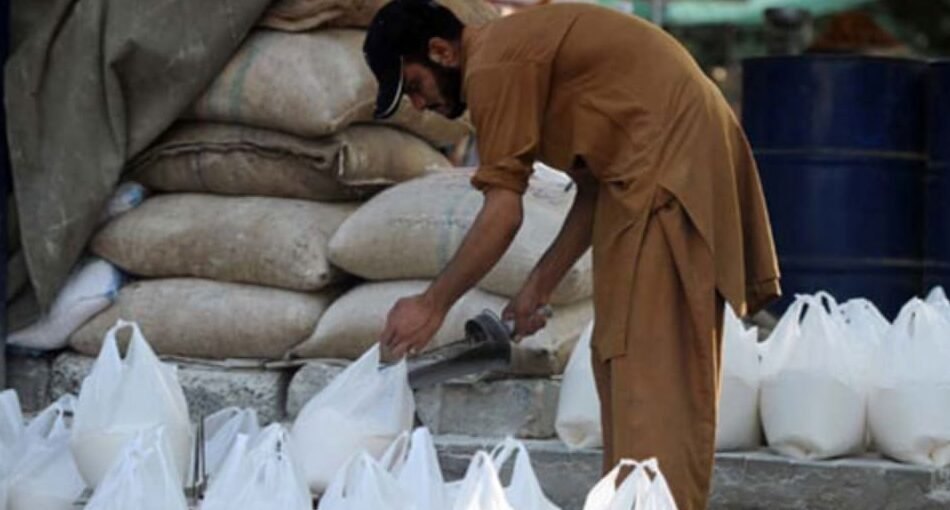In a recent development in Karachi’s iconic Jodia Bazaar, Pakistan’s oldest and largest wholesale market, a shopkeeper fined for offering flour below the officially sanctioned price. This incident not only sparks debate but also unveils the intricacies of pricing regulations within the country’s dynamic marketplaces.
The Karachi Wholesaler Grocers Group (KWGG) voiced discontent over the punitive measures levied against the shopkeeper, even threatening a potential shutdown strike to protest what they perceive as unjust treatment.
A delegation from the Deputy Commissioner’s office conducted a thorough examination of price points and food sales across various establishments within Jodia Bazaar. During the investigation, authorities stumbled upon a vendor retailing flour at a rate lower than the mandated price.
Abdur Rauf, Chairman of Wholesaler Grocers, revealed that the vendor was selling flour at Rs115 per kilogram, a notable deviation from the official rate of Rs123 per kilogram.
Responding to the vendor’s penalty, the chairman expressed dismay, remarking how the act of providing affordable flour to low-income citizens seemed to have transformed into an offense in itself. This episode underscores the dilemmas encountered by vendors striving to comply with official pricing regulations while also meeting the demands of financially disadvantaged communities.
Amidst a competitive market landscape fraught with fluctuating prices, traders grapple with the dual objectives of profitability and accessibility. It calls for meaningful discourse between government bodies and trade associations to tackle underlying issues and forge equitable solutions. Ultimately, the aim should be to strike a harmonious balance between regulatory adherence and the well-being of both traders and consumers, fostering a fair and transparent marketplace for all stakeholders


